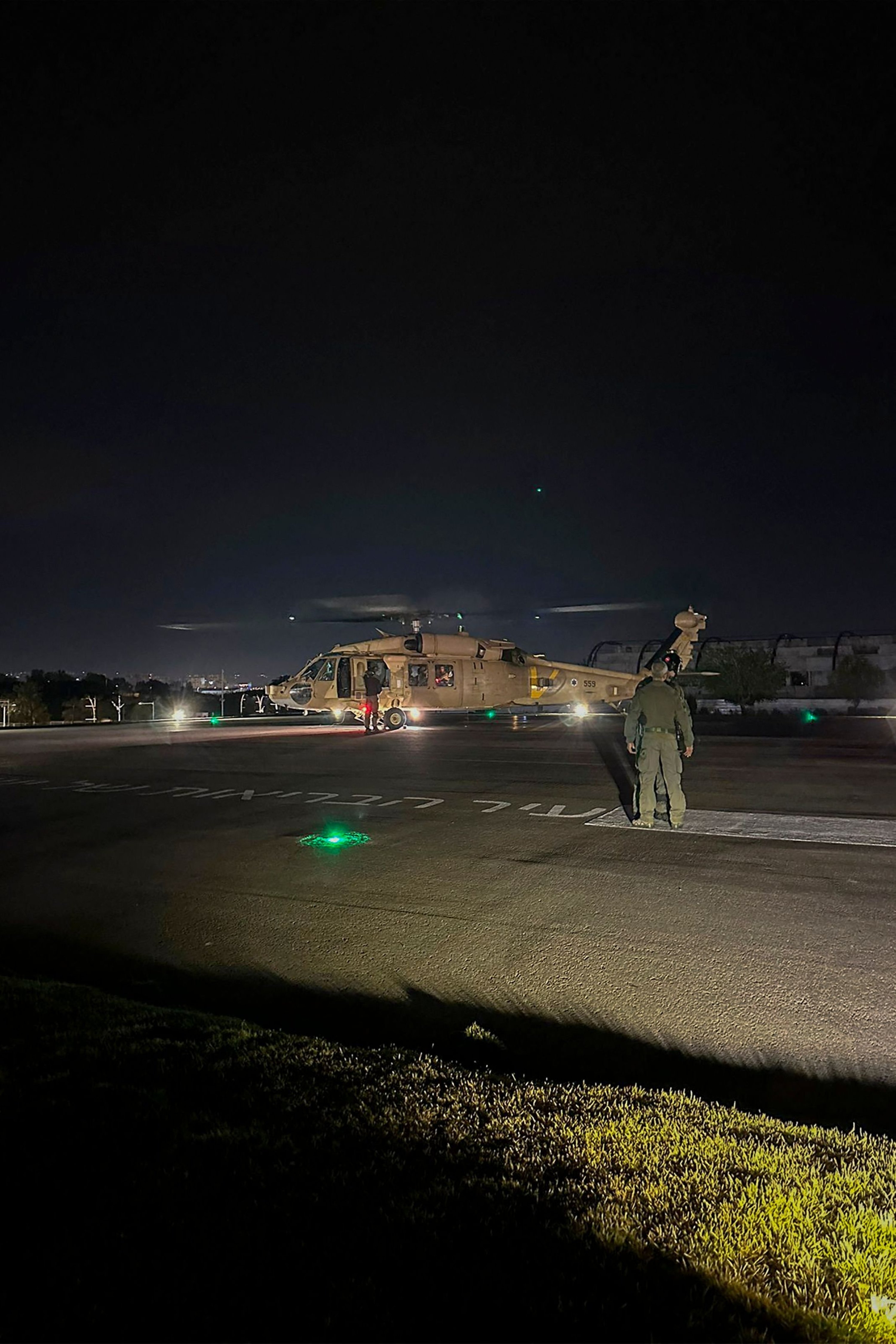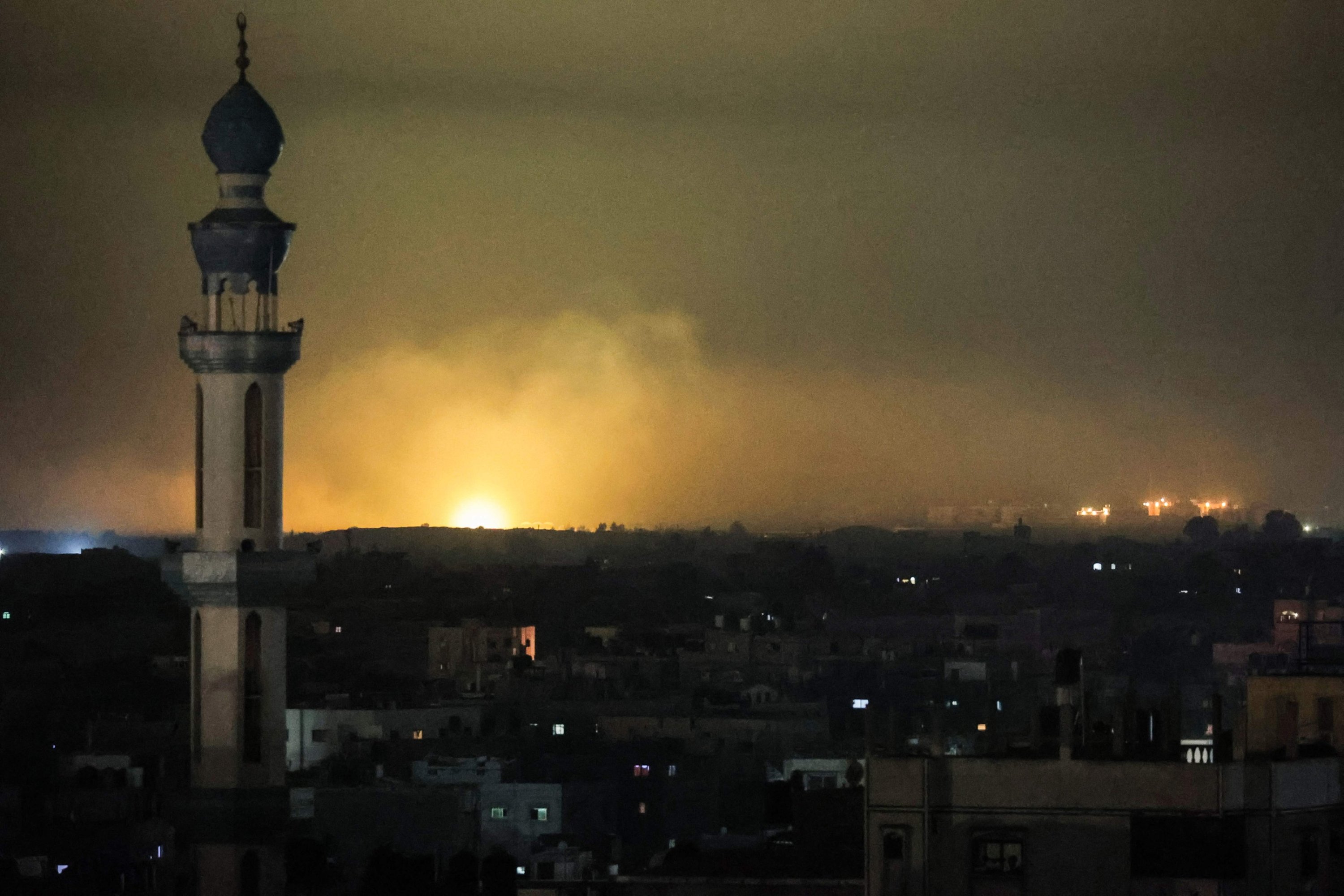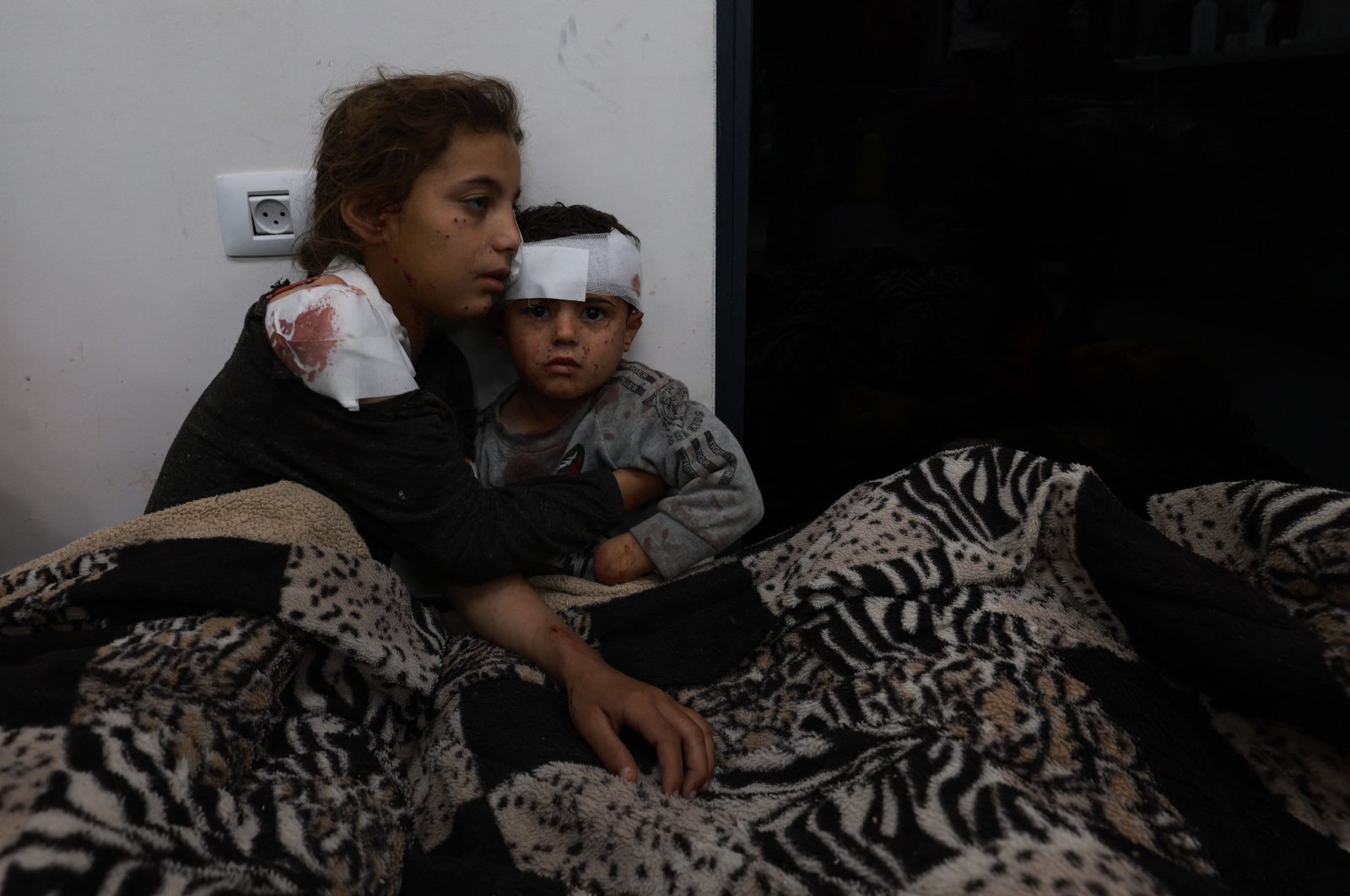Officials at the al-Najjar hospital confirmed receiving at least 50 bodies, while an Associated Press journalist also counted the bodies brought to the hospital
Dr. Marwan al-Hams, director of the Abu Youssef al-Najjar hospital, the dead included women and children.
The Israeli military, in the meanwhile, announced early Monday morning that two captives had been rescued in a joint military, Shin Bet and police operation in Rafah after nearly 130 days in captivity.
In a statement, the army identified the two as Fernando Simon Marman and Louis Har, saying they were kidnapped by Hamas on Oct. 7 from Kibbutz Nir Yitzhak. Both were in good medical condition, it added.
“The military and the Shin Bet have been working on this operation for a long time… and they waited until the conditions were right to carry it out,” army spokesperson Daniel Hagari said in a briefing.
A firefight broke out as the hostages were being taken out of the building they were held in, he added, with airstrikes targeting nearby buildings where shots were fired.
“Many… were killed this evening during this operation and one of our fighters was slightly injured,” he said.

Tel Aviv, Israel, Feb. 12, 2024. (AFP Photo)
During the Oct. 7 incursion, Palestinian resistance members seized about 250 hostages, according to an AFP tally based on official Israeli figures. Israel says around 130 are still in Gaza, though 29 are thought to be dead.
The Hamas incursion on southern Israel resulted in the deaths of about 1,160 people, according to an AFP tally based on official figures.
Israel has responded with a relentless offensive in Gaza that the territory’s Health Ministry says has killed at least 28,176 people as of Sunday, mostly women and children.
Dozens of hostages were freed by Hamas during a one-week truce in November that also saw the release of more than 200 Palestinian prisoners held in Israeli jails.
Since then, Netanyahu has faced mounting protests and even calls for early elections, with relatives of the hostages frustrated over the pace of the rescues.
Renewed talks for a pause in the fighting have been held in Cairo, with Hamas open to a fresh cease-fire including more prisoner-hostage exchanges.
But a Hamas leader told AFP on condition of anonymity that an Israeli push into Rafah “would torpedo the exchange negotiations.”
The group on Sunday said two hostages had been killed and eight others seriously wounded in Israeli bombardment in recent days, a claim AFP was unable to independently verify.
 Smoke billows during Israeli bombardment over Rafah in the southern Gaza Strip, Palestine, Feb. 12, 2024. (AFP Photo)
Smoke billows during Israeli bombardment over Rafah in the southern Gaza Strip, Palestine, Feb. 12, 2024. (AFP Photo)
Overnight strikes
Despite mounting calls for him to strike a deal with Hamas to secure the remaining captives’ release, Netanyahu has insisted that only military pressure can bring them home.
Last week, he said he had ordered troops to prepare for operations in Rafah, the last major city they have yet to enter.
“Around 100” people were killed in heavy airstrikes in the overcrowded city before dawn on Monday, according to a statement from the territory’s Health Ministry.
AFP journalists and witnesses heard an intense series of strikes and saw smoke billowing above the city, which now hosts more than half of Gaza’s total population after they fled bombardment elsewhere in the Strip.
The strikes hit 14 houses and three mosques in different parts of Rafah, according to the local authorities.
The Israeli military said it had “conducted a series of strikes on terror targets in the area of Shaboura in the southern Gaza Strip,” adding that the strikes had concluded.
U.S. President Joe Biden spoke to Netanyahu by phone Sunday and told him the Rafah advance should not go ahead in the absence of a “credible” plan to ensure “the safety” of people sheltering there, the White House said.
About 1.4 million Palestinians have crowded into Rafah, with many living in tents, while food, water and medicine are becoming increasingly scarce.
Netanyahu had told U.S. broadcaster ABC News the Rafah operation would go ahead until Hamas was eliminated, adding he would provide “safe passage” to civilians wishing to leave.
When pressed about where they could go, Netanyahu said: “You know, the areas that we’ve cleared north of Rafah, plenty of areas there. But, we are working out a detailed plan.”
Source:dailysabah.com
